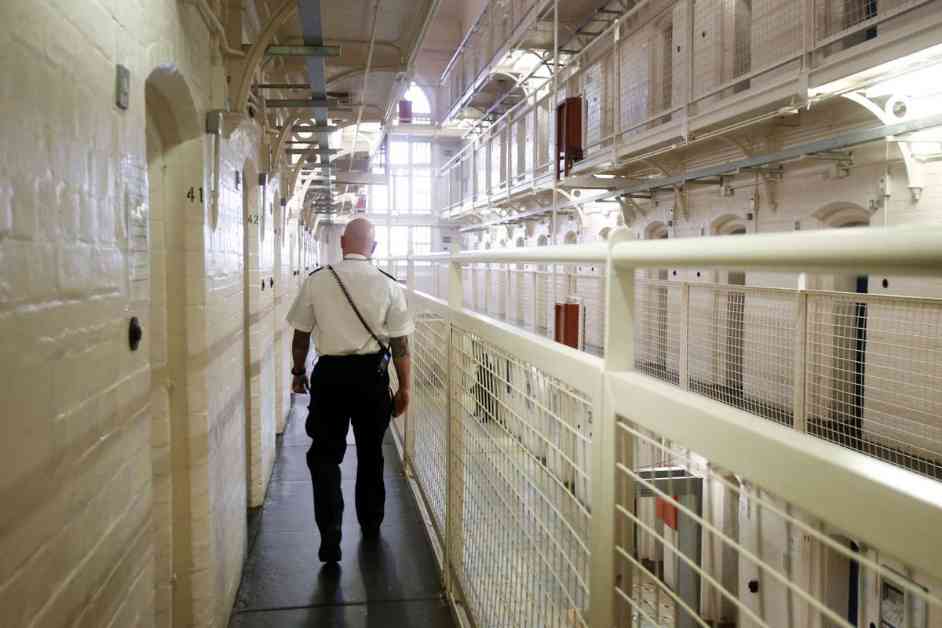Former Prisons Chief Urges Government to Rethink Jail Expansion
Nick Hardwick, the former Chief Inspector of Prisons and current professor of Criminal Justice at Royal Holloway University, is calling on the Labour government to reconsider plans for new prisons. Instead of investing in more incarceration facilities, Hardwick advocates for redirecting funds towards crime prevention and rehabilitation efforts. His perspective challenges the traditional approach to addressing the justice system’s shortcomings and prompts a critical examination of the current priorities in criminal justice policy.
Current Prison Expansion Plans and Challenges
Before the general election, Justice Secretary Shabana Mahmood announced the Labour party’s intention to use emergency powers to create an additional 14,000 prison spaces. This proposal came in response to delays in the Tory government’s plan to expand the existing prison system, which aimed to add 20,000 new places by the mid-2020s but had only completed 6,000 at the time. The pressure on prisons has intensified due to recent nationwide unrest, resulting in the incarceration of rioters convicted for their involvement in the disturbances.
While the government’s plan to build more prisons seeks to accommodate the growing inmate population and alleviate overcrowding, Hardwick questions the effectiveness of this approach. He argues that investing billions in new correctional facilities may not address the root causes of criminal behavior or promote rehabilitation among offenders. Instead of focusing solely on incarceration as a solution, Hardwick suggests exploring alternative strategies that prioritize prevention and support for individuals at risk of entering the criminal justice system.
Reevaluating Priorities in Criminal Justice Policy
According to Hardwick, the rise in the prison population is not necessarily due to an increase in criminal convictions but rather to longer sentences imposed on offenders. As the average custodial sentence has grown from 18 months in 2013 to 23 months in 2023, the capacity of the justice system to rehabilitate individuals and reduce recidivism is called into question. Hardwick uses the analogy of a filling bath with a blocked drain to illustrate the issue: simply removing water from the tub does not address the underlying problem of the blockage.
By emphasizing the need to invest in programs that prevent individuals from entering the criminal justice system and supporting their rehabilitation, Hardwick challenges the conventional wisdom that building more prisons is the most effective response to crime. He advocates for a holistic approach that considers the social determinants of criminal behavior, such as education, healthcare, and mental health services. Rather than focusing solely on punitive measures, Hardwick urges policymakers to explore innovative solutions that address the root causes of crime and promote long-term societal well-being.
The Impact of Longer Sentences on the Justice System
The trend towards longer custodial sentences raises concerns about the effectiveness of incarceration as a deterrent to crime. Hardwick argues that simply extending the duration of prisoners’ stays in jail without addressing underlying issues such as rehabilitation and reintegration into society may not lead to positive outcomes. Instead of investing resources in expanding the prison system, he suggests reallocating funds towards initiatives that support individuals in transitioning back into their communities and reducing their likelihood of reoffending.
The government’s commitment to addressing the crisis in prisons and promoting rehabilitation is commendable, but Hardwick’s critique highlights the need for a more comprehensive and nuanced approach to criminal justice policy. By rethinking the emphasis on incarceration and exploring alternative strategies that prioritize prevention and support, policymakers can create a more effective and sustainable system that addresses the root causes of crime and fosters positive outcomes for individuals and communities alike.
In Conclusion
The perspective offered by Nick Hardwick, the former Chief Inspector of Prisons, challenges the conventional wisdom surrounding jail expansion and prompts a critical reevaluation of current priorities in criminal justice policy. By advocating for a shift towards prevention and rehabilitation, Hardwick encourages policymakers to consider alternative approaches that address the root causes of crime and promote long-term societal well-being. As the government navigates the challenges of a growing inmate population and pressure on the prison system, Hardwick’s insights offer valuable considerations for shaping a more effective and humane justice system.












